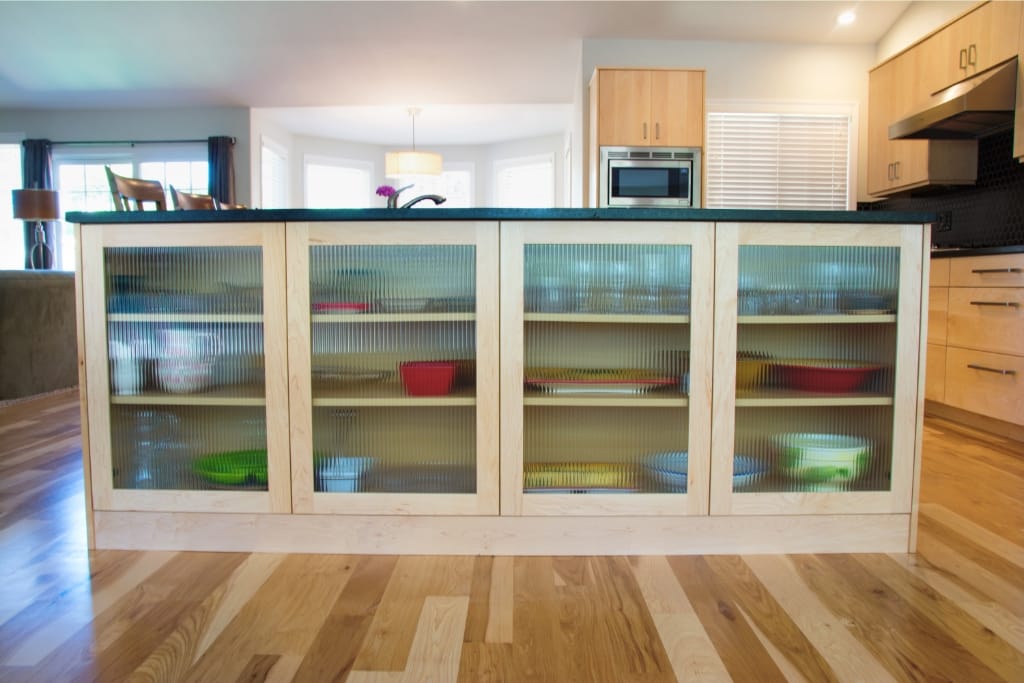An organized kitchen brings harmony to your daily routine, making cooking and cleaning more efficient and enjoyable.
By implementing practical solutions and creative storage ideas, you can maximize your cabinet space, keep your essentials at your fingertips, and create a kitchen that works seamlessly for you.
Start your organizing journey with these actionable tips that will make a lasting difference in your kitchen setup.
1)) Group Similar Items Together
Grouping similar items is one of the simplest ways to bring order to your kitchen cabinets.
Start by categorizing your items—keep all baking supplies in one area, store spices, and seasonings together, and dedicate a specific zone for pots and pans.
This method helps you locate what you need effortlessly while avoiding unnecessary clutter.
Use storage bins or shelf dividers to maintain these groupings and prevent items from mixing.
By sticking to this system, you’ll save both time and energy while ensuring your kitchen remains functional and organized.
2)) Use Clear Labels
Using clear labels is a straightforward yet effective way to maintain a well-organized kitchen.
Labels allow you to instantly identify the contents of jars, bins, and containers, removing the guesswork and saving time when you're cooking or tidying up.
Choose durable labels with legible fonts and consider categorizing by color to make your system even more efficient.
Labeling shelves or cabinet sections can also guide family members in returning items to their proper places, ensuring the organization stays intact.
By incorporating clear labels, you create a visually cohesive and highly functional kitchen space that works for everyone.
3)) Install Drawer Organizers
Drawer organizers are an essential addition to maximizing the functionality of your kitchen storage.
These handy tools separate and categorize utensils, cutlery, and smaller gadgets, keeping everything neat and within reach.
Choose adjustable or expandable organizers to customize compartments based on your drawer dimensions and item sizes.
Beyond utensils, they can also be used for organizing items like food wraps, measuring spoons, or kitchen tools.
With everything clearly sorted and easily accessible, drawer organizers eliminate the chaotic jumble, helping you maintain an orderly and stress-free kitchen setup.
4)) Maximize Vertical Space
Maximizing vertical space is a game-changer when it comes to organizing kitchen cabinets.
By utilizing the often-overlooked height of your cabinets, you can significantly increase storage capacity without adding clutter.
Install shelf risers to create extra tiers for stacking plates, bowls, or pantry items.
Consider using hooks or pegboards on cabinet doors for hanging mugs, measuring cups, or lightweight utensils.
You can also add pull-out baskets or stackable bins to make use of every inch from top to bottom.
With vertical space fully optimized, your kitchen will feel more spacious and well-arranged, making daily tasks much more efficient.
5)) Add Lazy Susans
Lazy Susans are a versatile and practical solution to make the most of hard-to-reach areas in your kitchen cabinets.
These rotating trays allow you to access items at the back of a cabinet effortlessly, making them ideal for storing spices, condiments, or small jars.
Place a Lazy Susan in corner cabinets, pantry shelves, or under sink storage to ensure every item is visible and easy to grab.
Available in various sizes and materials, they cater to different storage needs while adding convenience to your kitchen routine.
By incorporating Lazy Susans, you create a more accessible and organized space that simplifies everyday tasks.
6)) Utilize Cabinet Doors
Cabinet doors offer often-overlooked opportunities for extra storage that can significantly enhance your kitchen's organization.
Install adhesive hooks, small racks, or magnetic strips on the inside of doors to hold items like measuring spoons, pot lids, cleaning supplies, or cutting boards.
You can also use over-the-door organizers to maximize vertical space for smaller items such as spices or cooking tools.
This approach keeps essential items off the countertops and within easy reach, all while keeping your cabinets tidy.
By taking full advantage of cabinet doors, you create an efficient storage system that optimizes every inch of your kitchen.
7)) Arrange By Frequency Of Use
Arranging items in your kitchen by frequency of use is a smart strategy for maintaining both order and convenience.
Keep everyday essentials, such as plates, cups, and utensils, easily accessible in lower cabinets or drawers.
Store less frequently used items, like specialty bakeware or holiday serving dishes, in higher or harder-to-reach locations.
This approach minimizes unnecessary movement and streamlines daily cooking tasks.
By prioritizing accessibility for often-used items, you create a kitchen space that is both practical and efficient, enhancing your overall workflow.
8)) Stack With Shelf Risers
Stacking with shelf risers is an excellent way to maximize storage and improve visibility in your kitchen cabinets.
These handy tools allow you to create additional levels within a single cabinet, making it easy to organize and access items like plates, bowls, or pantry goods.
By elevating certain items, you can prevent stacking too high, which often leads to instability or difficulty retrieving what you need.
Shelf risers come in various sizes and materials, making it easy to find the perfect fit for your storage needs.
By incorporating shelf risers, you optimize your cabinet space, reduce clutter, and create an efficient, well-structured kitchen environment.
9)) Invest In Pull-Out Shelves
Investing in pull-out shelves is a highly effective way to enhance both the storage capacity and accessibility of your kitchen cabinets.
These sliding shelves allow you to easily retrieve items from the back of cabinets without having to remove everything in front.
They are ideal for organizing pots, pans, baking sheets, or pantry essentials.
Customizable options are available to fit various cabinet sizes and unique storage needs, ensuring no space goes to waste.
By integrating pull-out shelves into your kitchen design, you create a more organized and user-friendly space that simplifies your daily routine.
10)) Declutter Unused Items
Decluttering unused items is a crucial step in creating a more organized and efficient kitchen.
Start by going through your cabinets, shelves, and drawers to identify items you haven’t used in months, such as old gadgets, mismatched containers, or expired pantry goods.
Donating or recycling these items not only frees up space but also allows you to focus on what truly adds value to your daily routines.
This practice prevents cabinets from becoming overcrowded and ensures that every item in your kitchen serves a purpose.
By keeping only the essentials, you maintain a neat, functional space that is easier to manage and enjoy.
11)) Store Heavier Items Below
Storing heavier items on lower shelves or in base cabinets is a practical way to enhance both safety and efficiency in your kitchen.
Items like large pots, cast iron pans, and small appliances can be heavy and difficult to maneuver, making it safer to keep them at waist level or below.
This approach not only reduces the risk of accidents from lifting heavy objects overhead but also ensures these items are more accessible for daily use.
By designating lower cabinets or shelves for heavier items, you maintain a safer and more organized kitchen that supports effortless functionality.
Conclusion
Creating an organized and efficient kitchen is all about making the best use of your available space and tailoring your setup to your needs.
By implementing strategies such as utilizing cabinet doors, arranging items by frequency of use, and decluttering unused items, you can transform your kitchen into a functional and stress-free environment.
Small adjustments like adding shelf risers, installing pull-out shelves, and storing heavier items on lower levels contribute significantly to a more practical workflow.
These thoughtful changes not only save time and energy but also make your kitchen a more enjoyable space to cook, gather, and create memories.
Download Our Free E-book!







